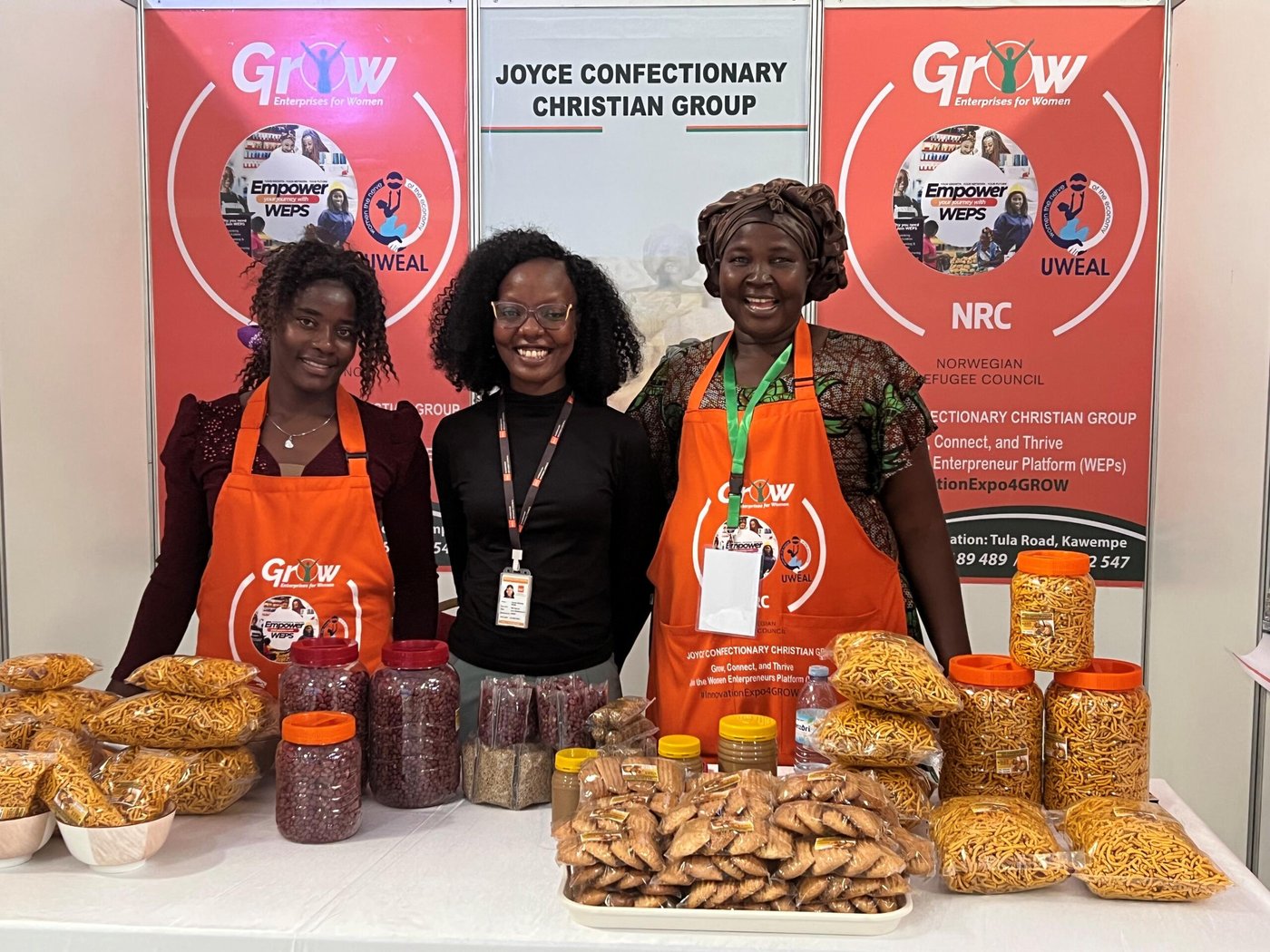A mother, leader, and an entrepreneur
Today, Joyce is a single mother and foster parent to several children. She leads a community business initiative known as the Joyce Confectionary Christian Group, made up of around 30 mostly young members. The group produces a range of sweet and savoury treats, from roasted groundnuts and cookies, to local snacks and peanut butter. Their workspace is tight, with large production machines crowding the room, but it’s alive with energy and hope. Amid the hum of ovens and mixer, a strong sense of purpose and unity shines through the team of refugees and Ugandans.
Before receiving support, Joyce and her group operated at minimal capacity. They had no machinery and relied on expensive loans from moneylenders. Their products, although popular, couldn’t satisfy growing demand due to limited resources. On top of that, the group operated informally without formal business registration, leaving their operations vulnerable and at constant risk.
A business transformed
Everything began to change when the Norwegian Refugee Council (NRC) identified Joyce and her group. NRC’s support was multifaceted. They provided cash grants that allowed the group to buy essential bakery equipment such as ovens and mixers. They also delivered training in soft bakery skills, including business management and financial literacy. In addition, NRC supported them with registering and licensing their business. To further strengthen their operations, NRC also introduced village savings and loan associations kits and financial literacy trainings.
The impact has been transformative. Production has grown significantly, enabling the group to meet rising demand and improve product quality. With increased income, the group reinvested in their business, adding a three-deck oven using their own earnings. Their financial practices also matured. They’ve opened bank accounts, and borrowing from predatory lenders is now a thing of the past. The group has welcomed new members, and more young people are gaining skills and employment, setting them on a path toward self-reliance.
Despite these strides, challenges remain. The lack of product certification limits their ability to sell widely, and the current workspace is too small for the scale of the operations. Yet Joyce’s determination remains unshaken.
Looking ahead, Joyce Confectionary Christian Group is exploring loan options and other financial opportunities. Their aim is to expand operations, obtain product certification, and secure a larger workspace that can accommodate their growing production needs. With a solid foundation and a clear vision, Joyce and the team are determined to take the business to the next level and create more opportunities for youth in their community.
Sign up to our newsletter to read more stories from around the world.
Uganda is one of the world’s most neglected displacement crises. It may not make the headlines, but the needs are urgent. Share this story and help shine a light on the world's neglected displacement crises. Your voice matters when others remain silent.


